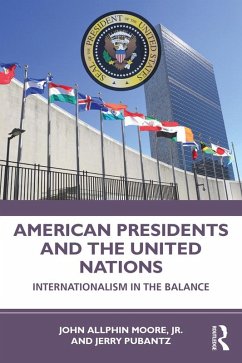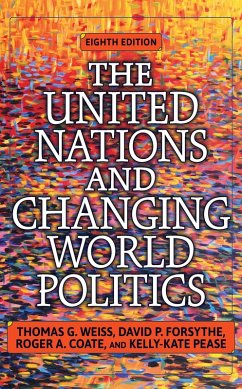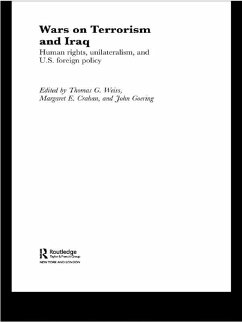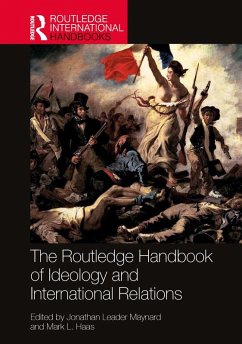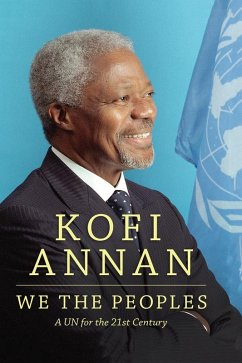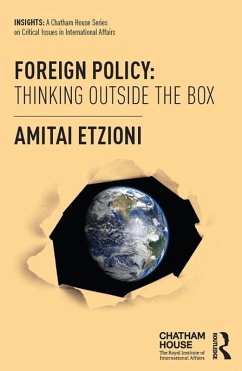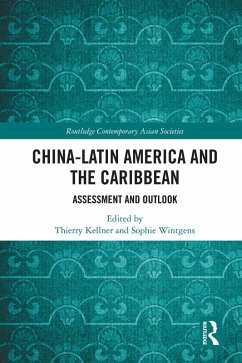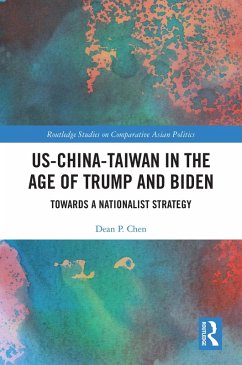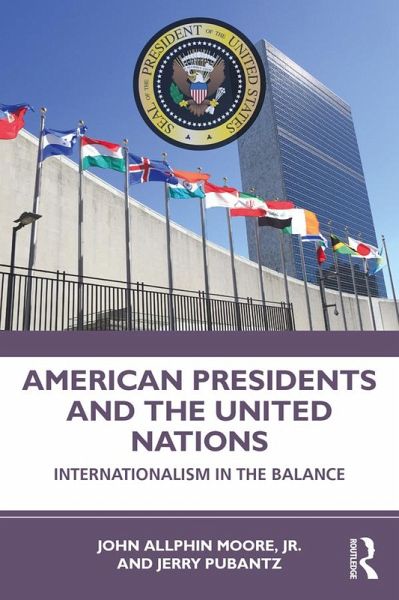
American Presidents and the United Nations (eBook, ePUB)
Internationalism in the Balance
Versandkostenfrei!
Sofort per Download lieferbar
47,95 €
inkl. MwSt.
Weitere Ausgaben:

PAYBACK Punkte
24 °P sammeln!
American Presidents and the United Nations: Internationalism in the Balance offers a fresh look at the U.S.-UN relationship. The current discourse regarding America's linkage with the UN-and particularly about the President's influence on the world body-has metamorphosed well beyond the conventional conversation of the post-World War II generation. This book places the UN-U.S. relationship within the evolving fabric of international affairs and American political developments through the 2020 presidential election, into the early Biden administration. The text integrates analyses of individual...
American Presidents and the United Nations: Internationalism in the Balance offers a fresh look at the U.S.-UN relationship. The current discourse regarding America's linkage with the UN-and particularly about the President's influence on the world body-has metamorphosed well beyond the conventional conversation of the post-World War II generation. This book places the UN-U.S. relationship within the evolving fabric of international affairs and American political developments through the 2020 presidential election, into the early Biden administration. The text integrates analyses of individual presidential politics and presidential foreign policy preferences from Franklin Roosevelt through Donald Trump, with congressional responses, and seemingly ever-accelerating, troublesome, and often unanticipated international crises. Readers will find the latest scholarship, primary sourcing, as well as synthesis, and a fresh analysis of the ongoing and increasingly multifaceted political and intellectual debate about America's role in the world. The book spotlights one of the most creative, complex, and inspirited global institutions ever devised by human beings-the United Nations-and puts it in context with the powerful role of the American presidency. Essential for students, scholars, and general readers alike.
Dieser Download kann aus rechtlichen Gründen nur mit Rechnungsadresse in A, B, BG, CY, CZ, D, DK, EW, E, FIN, F, GR, HR, H, IRL, I, LT, L, LR, M, NL, PL, P, R, S, SLO, SK ausgeliefert werden.




